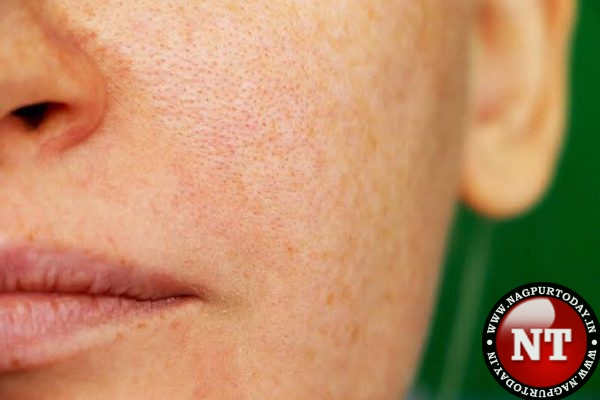
Acne is one of the most common skin diseases worldwide, affecting approximately 85% of young people. Traditional acne treatments such as salicylic acid, niacinamide, or benzoyl peroxide have proven to be the most effective acne treatments, but they can be expensive and have unwanted side effects like dryness, redness, and irritation. This has led many people to try to treat acne naturally at home.
Home remedies to help get rid of acne include herbal creams and gels, essential oils, natural supplements, and lifestyle changes. Acne occurs when pores become clogged or infected with bacteria. People can use certain home remedies to balance sebum levels, reduce inflammation, kill bacteria, and prevent future acne. However, there is little scientific evidence for the effectiveness of most home remedies.
Home remedies have not been tested for safety and effectiveness by the Food and Drug Administration (FDA), so exercise caution and discretion before incorporating them into your routine, and always prioritise professional medical care when needed. Though supplements and spot treatments may help prevent acne and help heal pimples, it is always recommended to tell your doctor about the symptoms you are experiencing and discuss available treatment options.
Understanding Acne
Acne is a common skin condition that occurs when hair follicles under the skin become clogged. Sebum (an oil that helps prevent skin from drying out) and dead skin cells clog pores, causing a breakout commonly called acne. The rash most often occurs on the face, but may also appear on the back, chest, and shoulders.
Before delving into home remedies, it is essential to understand the causes of acne. Acne results from the clogging of hair follicles with oil and dead skin cells, leading to the formation of acne, whiteheads, blackheads, or pimples. Factors such as genetics, hormonal fluctuations, diet, and stress can contribute to its development.
Common Home Remedies for Acne
- Tea Tree Oil: One popular home remedy is tea tree oil, renowned for its antibacterial properties. Applying diluted tea tree oil to acne-prone areas may help reduce inflammation and combat acne-causing bacteria.
- Honey and Cinnamon Mask: A mixture of honey and cinnamon has been a longstanding home remedy. Honey possesses antibacterial properties, while cinnamon may help exfoliate the skin. Combining the two creates a potential acne-fighting mask.
- Aloe Vera: Known for its soothing properties, aloe vera is often used to alleviate inflammation associated with acne. Applying aloe vera gel directly to affected areas may promote healing and reduce redness.
- Apple Cider Vinegar: Some individuals swear by the use of apple cider vinegar as a toner. Its acidic nature is believed to balance the skin’s pH and reduce acne, although caution is advised due to its potency.
- Baking Soda Scrub: Baking soda, when mixed with water, forms a gentle exfoliating scrub. This may help remove dead skin cells, unclog pores, and reduce the appearance of acne.
- Green Tea Extract: Green tea is renowned for its antioxidant properties. Rich in polyphenols, it may help reduce inflammation and fight acne-causing bacteria. Applying cooled green tea as a toner or incorporating it into homemade masks can be a refreshing addition to a skincare routine.
- Turmeric Mask: Turmeric, a spice known for its anti-inflammatory and antibacterial properties, has been used for centuries in traditional medicine. A paste made with turmeric and water or yoghurt can be applied as a mask, potentially reducing inflammation and promoting healing.
- Oatmeal Mask: Oatmeal is a gentle exfoliant that can help remove dead skin cells and absorb excess oil. Mixing ground oatmeal with water or honey creates a soothing mask that may help calm irritated skin and prevent further breakouts.
- Witch Hazel: Witch hazel is a natural astringent that can help remove excess oil from the skin. It is often used as a toner and may assist in tightening pores, reducing inflammation, and preventing acne breakouts.
- Jojoba Oil: Contrary to the belief that oil exacerbates acne, jojoba oil is known for its ability to mimic the skin’s natural oils. Applying a few drops of jojoba oil may help regulate sebum production, keeping the skin moisturised without clogging pores.
- Garlic: Garlic contains allicin, a natural antibiotic that may have antibacterial properties. Some people opt for a crushed garlic clove applied directly to blemishes, though caution is advised due to the potential for skin irritation.
- Papaya Mask: Papaya contains enzymes like papain that act as natural exfoliants. A mashed papaya mask may assist in removing dead skin cells, unclogging pores, and promoting a clearer complexion.
Importance of Consistency and Caution
- While these home remedies have shown promise for some individuals, it’s crucial to approach their use with consistency and caution. Patch testing is recommended before applying any new ingredient to a larger area of the face or body to prevent adverse reactions.
- Additionally, the effectiveness of these remedies can vary based on individual skin types and the severity of the acne condition. It’s essential to be patient and observe how the skin responds over time.
Role of Diet and Lifestyle
Apart from topical remedies, lifestyle modifications can play a significant role in managing acne. A balanced diet, regular exercise, and stress management are crucial elements in promoting overall skin health.
Introducing Acnestar
In the realm of home remedies, certain products have gained popularity for their efficacy in acne treatment. One such product is Acnestar, a topical solution formulated to target acne and related skin issues.
Acnestar incorporates key ingredients known for their anti-acne properties. Salicylic acid, a beta-hydroxy acid, aids in exfoliating the skin, unclogging pores, and reducing inflammation. Its presence in Acnestar makes it a potential ally in the fight against acne.
Furthermore, Acnestar contains herbal extracts known for their soothing effects on the skin. These extracts contribute to the product’s holistic approach to acne management, addressing not only active breakouts but also supporting overall skin health.
Conclusion
In the pursuit of clear and healthy skin, individuals often explore various avenues, including home remedies. While these remedies may offer relief to some extent, it’s essential to recognise that results can vary from person to person. Acnestar, with its blend of effective ingredients, stands as a promising addition to the arsenal against acne.
Ultimately, a multifaceted approach involving proper skin care, a balanced diet, and targeted treatments such as Acnestar may provide a comprehensive strategy for managing and preventing acne. Before embarking on any treatment, consulting with a dermatologist is advisable to tailor the approach to individual skin needs.















